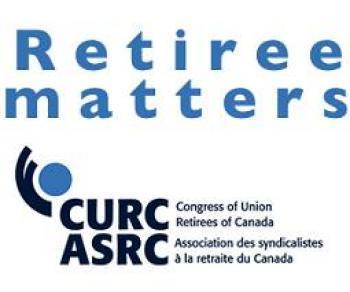Change the conversation, support rabble.ca today.
By current standards of drug coverage, George Rozon considers himself lucky. As a long-term diabetic (Type 1), who has had heart surgery and also a kidney transplant, drugs mean life to George. After 30 years working at a cardboard box plant in Alberta, he retired early for health reasons and now, aged 59, lives in rural Nova Scotia.
His anti-rejection drugs for the kidney cost approximately $12,000 a year and he’s lucky he lives in Canada and not the U.S., because these drugs are fully paid by the government. But George needs other drugs and, along with medication for his wife, the joint cost for both mounts to about $10,000 a year. Buying those drugs gets a lot more complicated. Again he is lucky, because he worked at a unionized paper mill and is one of the just 20 per cent of Canadian retirees covered by a workplace drug plan. His plan covers 80 per cent of his drug costs, which leaves George paying $2,000 a year out of his own pocket. This is not so easy on a pre-tax pension income of $22,000 a year, but so far he manages.
George is worried though, because his luck may run out. The plant where he used to work has been sold and resold, and each sale sees a new negotiation around whether the drug plan for retirees will be discontinued. This is scary because George is not yet 65, when some kind of coverage from the province would click in. He also hopes no other illness requiring drugs comes along, which would further undermine his limited income.
So how do we Canadians feel about an essential part of our health care depending upon luck? If you’re lucky, you have a job with a drug plan. That’s less than half of us, because many are self-employed, or work part-time, or have no union, or get laid off, or get divorced from the spouse with the plan, not to mention just retiring and automatically losing out. And then if you do have a drug plan at work, you’ll be lucky if it covers most of the cost. Few plans cover 100 per cent, so you’re going to pay something. But if George’s plan, like many plans, covered just 60 per cent instead of 80 per cent, he’d be really hard pressed to pay $4,000 a year instead of the $2,000 he pays now.
If you end up hoping for help with drug costs from the government, you’ll be really lucky if you live in Nunavut, and somewhat lucky if you live in B.C., but try not to get caught needing drugs in the Atlantic provinces. As André Picard, health columnist for the Globe and Mail, noted:
“There is a basic unfairness that exists in the wide provincial variations. The fact that a person with a $20,000 out-of-hospital drug cancer treatment will pay nothing out-of-pocket in Nunavut, $3,000 in British Columbia and $20,000 in Prince Edward Island offends the principles of medicare and Canadian values.”
The proof is now unassailable that a national public Pharmacare program to cover everyone for necessary prescription drugs would reduce and control the cost of drugs, be less expensive to run than the thousands of private drug plans, and be significantly more likely to provide drugs that are safe and appropriate (see below). Perhaps we should join all the other industrialized countries of the world (with the sole exception of the U.S.) that have a national drug plan. What are we waiting for?
Notes:
For the arguments about how and why a national, public prescription drug program could save us as much as $10.7 billion (i.e. 43 per cent of total drug costs), see: “The Economic Case for Universal Pharmacare: Costs and Benefits of Publicly Funded Drug Coverage for all Canadians” by Marc-André Gagnon with the assistance of Guillaume Hébert, Canadian Centre for Policy Alternatives, Ottawa, 2010. Find it here.
The Canadian Health Coalition is hosting an international conference in Ottawa on May 24-25 2013, called “Rethinking Drug Coverage: Time for Universal Pharmacare?” You can see the details and register online at www.pharmacare2013. ca.
The Health Coalition is looking for other personal stories concerning the cost of drugs. If you have found it difficult to afford necessary prescription drugs and would be comfortable sharing your experience, please contact the coalition at [email protected] and use the subject line Personal Story. Thanks.
Retiree Matters is a monthly column written by members of the Congress of Union Retirees of Canada (CURC) that explores issues relevant to retirees, senior citizens, their families and their communities. CURC acts as an advocacy organization to ensure that the concerns of union retirees and senior citizens are heard throughout Canada.



